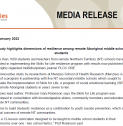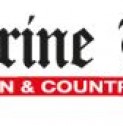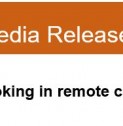Professor Tricia Nagel
Head of Wellbeing Preventable and Chronic Diseases Division; Head, Mental Health Theme, WPCD Division
Qualifications:
PhD, Charles Darwin University, 2008; Fellow of the Royal Australian and New Zealand College of Psychiatrists, 1996; Bachelor of Medicine and Bachelor of Surgery, University of Melbourne, 1982.
Approved level of HDR supervision at Charles Darwin University:
Principal Supervisor for PhD
Location:
Darwin - Royal Darwin Hospital campus
Biography:
Professor Nagel has 30 years’ experience in the Northern Territory as clinician, educator, researcher and leader of the Stay Strong program including the Aboriginal and Islander Mental health initiative (AIMhi). A collaboration with First Nations communities, service providers and researchers, the Stay Strong program promotes social and emotional wellbeing and mental health through codesign and evaluation of innovative cross cultural resources.
The AIMhi research and training program has resulted in changes to guidelines and routine care in First Nations and rural and remote mental health care across Australia. The team delivers training and implementation support to diverse primary care and specialist settings across Australia focusing on the Stay Strong App and related culturally responsive digital mental health resources.
- AIMhi-Y App development & feasibility trial
- AIMhi NT
- the AIMhi Stay Strong app
- Wellbeing Intervention for Chronic Kidney Disease (WICKD)
- BEAT depression and substance misuse
- Cultural security and care planning
- Screening and treatment for alcohol related trauma (START)
- Yarning about gambling
- Yarning about mental health.
- Nagel, T. & Thompson, C. (2008). Motivational care planning – self management in indigenous mental health. Australian Family Physician, 37(12), 996-1000.
- Nagel, T., Thompson, C., Robinson, G., Condon, J. & Trauer, T. (2009). Two-way approaches to Indigenous mental health literacy. Australian Journal of Primary Health, 15(1), 50-55.
- Nagel, T., Robinson, G., Condon, J. & Trauer, T. (2009). Approach to treatment of mental illness and substance dependence in remote Indigenous communities: Results of a mixed methods study. Australian Journal of Rural Health, 17(4), 174-182.
- Nagel, T., Thompson, C., Spencer, N., Judd, J. & Williams, R. (2009). Two way approaches to Indigenous mental health training: Brief training in brief interventions. Australian e-Journal for the Advancement of Mental Health, 8(2).
- Nagel, T & Thompson, C. (2010). The central role of Aboriginal families in motivational counselling: family support and family ‘humbug’. Australian Indigenous Health Bulletin, 10(1).
- Nagel, T. & Griffin, C. (2010). Promoting Self-management in Indigenous People with Mental Illness and Substance Misuse. International Journal of Psychosocial Rehabilitation, 15(2), 85-90.
- Nagel, T., Kavanagh, D., Barclay, L., Trauer, T., Chenhall, R., Frendin, J. & Griffin, C. (2011). Integrating treatment for mental and physical disorders and substance misuse in Indigenous primary care settings. Australasian Psychiatry,19 S17-S19.
- Nagel, T., Hinton, R. & Griffin C. (2012). Yarning about mental health: translation of a recovery paradigm to practice. Advances in Mental Health, 10(3), 216-223.
- Hinton, R & Nagel, T. (2012). Evaluation of a culturally-adapted training in Indigenous mental health and wellbeing for the alcohol and other drug sector. International Scholarly Research Network Public Health, 2012. doi:10.5402/2012/380581.
- Jayaraj, R., Thomas, M., Kavanagh, D., d'Abbs, P., Mayo, L., Thompson, V., Griffin, C. & Nagel, T. (2012). Study Protocol: Screening and Treatment of Alcohol-Related Trauma (START) - a randomised controlled trial. BMC Health Services Research, 12(1), 371.
Click here to view more Tricia Nagel publications in PubMed.
-
Building resilience in remote Aboriginal students
The innovative study by researchers at Menzies School of Health Research (Menzies) is part of a program in partnership with five NT secondary/middle schools which sought to evaluate the implementation of Skills for Life.
-
Study highlights dimensions of resilience among remote Aboriginal middle school students
More than 1000 students and teachers from remote Northern Territory (NT) schools have assisted in implementing the Skills for Life resilience program with results now published in the highly regarded multidisciplinary journal PLOS ONE.
-
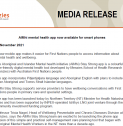
AIMhi mental health app now available for smart phones
The AIMhi Stay Strong app is a colourful, user-friendly digital mental health tool developed by Menzies with Australian First Nations people.
-
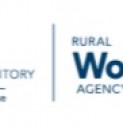
National Suicide Prevention Trial - two new programs announced
New programs have been announced as part of a National Suicide Prevention Trial underway in the Northern Territory.
-
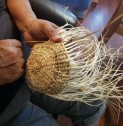
Media release | Mental Health Week
New resource to promote mental health and wellbeing in Indigenous communities featured during Mental Health Week
-
Fifth wave of research to roll out across the Top End
Australia’s largest and longest running study of Aboriginal people, the Aboriginal Birth Cohort Study (ABC), has commenced its fifth wave of data collection.
-
Tackling smoking in remote communities
The development of Yarning about Smoking is a collaboration between the Health Department’s Remote Alcohol and Other Drugs Workforce Program in Primary Health Care and the Menzies School of Health Research
-
NTG Media Release | Tackling smoking in remote communities
The development of Yarning about Smoking is a collaboration between the Health Department’s Remote Alcohol and Other Drugs Workforce Program in Primary Health Care and the Menzies School of Health Research. The resource can be used and accessed by people all across the Health Department as well as the NGO sector to provide assessments and intervention with people who are smoking.
-
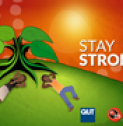
Mental health app reaches out to Indigenous Australians
A pioneering iPad app which visually represents an individual’s strengths and weakness is hoping to significantly improve Indigenous mental health; one of the nation’s fastest growing health problems.
-
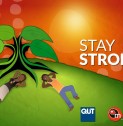
New app to improve Indigenous mental health featured on World Mental Health Day
An innovative iPad app based on tools developed by Indigenous people for Indigenous people is hoping to address one of the nation’s fastest growing health problems.
-

World Mental Health Day 2011



